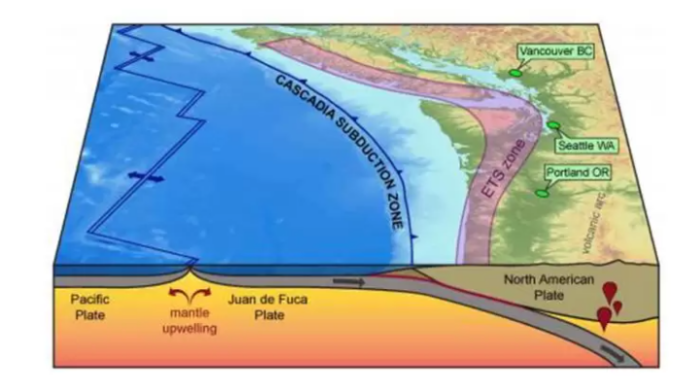Scientists have a better understanding of the forces causing earthquakes from Vancouver Island to California, thanks to recent research.
In 2021 the American National Science Foundation funded an expedition to study the Cascadia Subduction Zone, a 600-mile-long strip deep underwater west of Vancouver Island. A research ship used electronic equipment to send and record sound pulses that penetrate the seafloor, and convert the results into images providing a better look at what’s deep underground.
The research, published earlier this month, found the zone has several segments which move independently, as the Juan de Fuca plate pushes under the North American plate,
Lead author Suzanne Carbotte says the findings will help people who study earthquakes and tsunami hazards on the West Coast.






